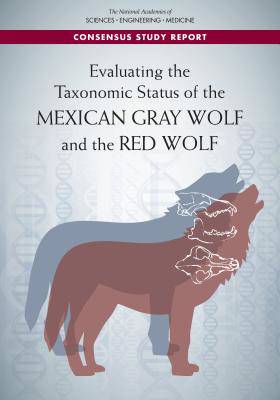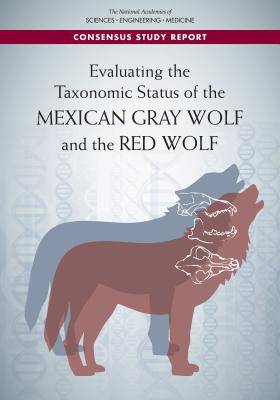
- Retrait gratuit dans votre magasin Club
- 7.000.000 titres dans notre catalogue
- Payer en toute sécurité
- Toujours un magasin près de chez vous
- Retrait gratuit dans votre magasin Club
- 7.000.0000 titres dans notre catalogue
- Payer en toute sécurité
- Toujours un magasin près de chez vous
Evaluating the Taxonomic Status of the Mexican Gray Wolf and the Red Wolf
National Academies of Sciences Engineering and Medicine, Division on Earth and Life Studies, Board on Agriculture and Natural Resources, Board on Life Sciences, Committee on Assessing the Taxonomic Status of the Red Wolf andDescription
Scientists strive to develop clear rules for naming and grouping living organisms. But taxonomy, the scientific study of biological classification and evolution, is often highly debated. Members of a species, the fundamental unit of taxonomy and evolution, share a common evolutionary history and a common evolutionary path to the future. Yet, it can be difficult to determine whether the evolutionary history or future of a population is sufficiently distinct to designate it as a unique species.
A species is not a fixed entity -- the relationship among the members of the same species is only a snapshot of a moment in time. Different populations of the same species can be in different stages in the process of species formation or dissolution. In some cases hybridization and introgression can create enormous challenges in interpreting data on genetic distinctions between groups. Hybridization is far more common in the evolutionary history of many species than previously recognized. As a result, the precise taxonomic status of an organism may be highly debated. This is the current case with the Mexican gray wolf (Canis lupus baileyi) and the red wolf (Canis rufus), and this report assesses the taxonomic status for each.
Spécifications
Parties prenantes
- Auteur(s) :
- Editeur:
Contenu
- Nombre de pages :
- 104
- Langue:
- Anglais
Caractéristiques
- EAN:
- 9780309488242
- Date de parution :
- 01-06-19
- Format:
- Livre broché
- Format numérique:
- Trade paperback (VS)
- Dimensions :
- 178 mm x 254 mm
- Poids :
- 385 g

Les avis
Nous publions uniquement les avis qui respectent les conditions requises. Consultez nos conditions pour les avis.






